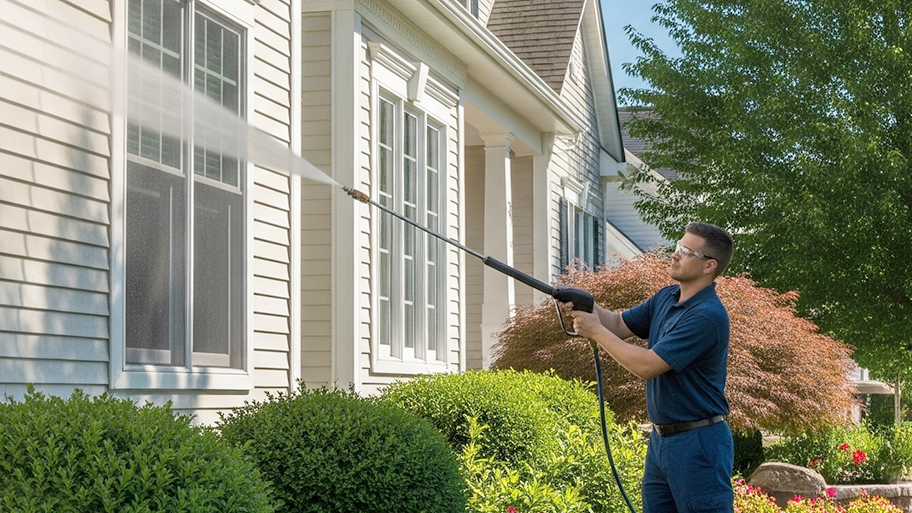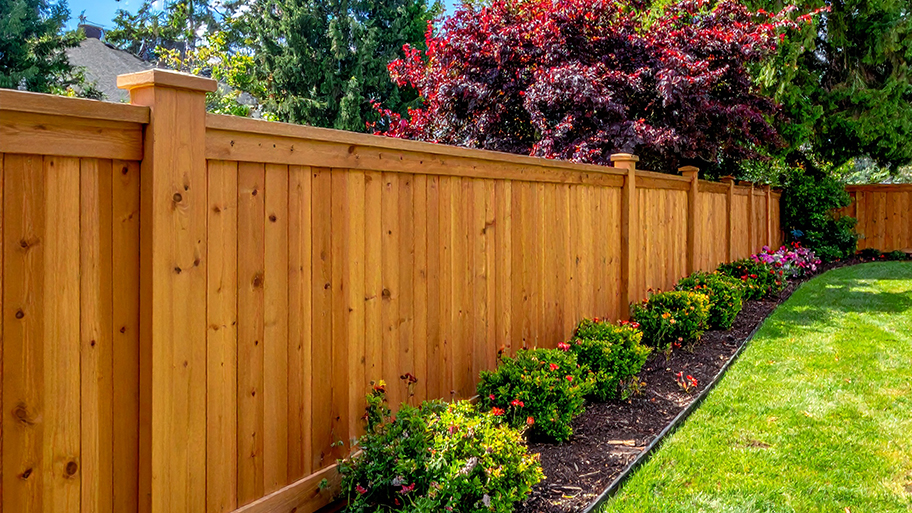
The cost to pressure wash a deck depends on its size, condition, material, and whether you DIY the job. Help set your budget with this cost guide.
Spray the driveway grime away


Pretreating your driveway can give you a leg up on fighting stains and make pressure washing more effective.
However, spraying before pressure washing might not always work on serious stains.
Using a pretreatment solution increases the cost of pressure washing.
For old or extensive staining, call a pressure washing professional.
Pressure washing is a great way to keep your driveway clean, but pressure washing alone isn’t always enough to blast away old or deep-set stains. If you’re dealing with stubborn oil stains, for example, you’ll need to spray them with a special cleaning agent before you break out the pressure washer. But is pretreating your driveway worth the extra work and expense? Let’s dive into the pros and cons and whether it’s better to spray or not to spray before pressure washing.
Pressure washing is a deep cleaning method that removes dirt, grime, and other buildup from outdoor areas. It uses a pressurized stream of water to blast debris off of hard surfaces, including concrete, brick, and wood decking. However, pressure washing is too harsh for soft or fragile materials, such as asphalt shingles and glass.
On its own, pressure washing your driveway can be enough to get rid of dirt and debris. However, if you’re dealing with tough stains (for example, oil or paint), consider pretreating the driveway before pressure washing.
| Pros of Spraying Before Pressure Washing | Cons of Spraying Before Pressure Washing |
|---|---|
| Helps remove difficult stains | Not guaranteed to work |
| Can reduce pressure washing time | Costs more |
Spraying your driveway with a pretreatment solution can make pressure washing easier and more effective. Here’s how.
Pressure washing alone won’t always remove stubborn paint, rust, or oil spots from your driveway. Like pretreating a stain on your clothes, however, spraying the concrete before pressure washing helps clean the surface more effectively.
Without pretreatment, getting rid of tough stains can take more time and effort. However, when you apply a special cleaning solution before pressure washing, it can make stain removal quicker and easier.
Pretreating your driveway has some downsides, too. Here are a couple to consider.
While often effective, spraying your driveway before pressure washing isn’t guaranteed to remove all stains. If you still have stains after pretreating and pressure washing, call in a pressure washing professional.
You’ll need to buy special cleaning solvents to tackle tricky stains with a pretreatment spray, which will increase the cost of pressure washing your driveway. You can expect to pay between $10 and $20 per bottle.

If you’re hoping to remove stains from your driveway, then yes—you should pretreat it with a special cleaning solution before pressure washing. However, if there aren’t any noticeable problem spots on your driveway, then pressure washing alone should be enough to clean it.
In some cases, though, it’s better to hire a pressure washing pro near you instead of tackling this project yourself—especially if you’re dealing with old or widespread stains. A pro will understand what you should spray before pressure washing and how to apply the right cleaning solutions to remove the spots effectively.
From average costs to expert advice, get all the answers you need to get your job done.

The cost to pressure wash a deck depends on its size, condition, material, and whether you DIY the job. Help set your budget with this cost guide.

Need to breathe new life into your dirty siding and trim? Explore the cost to pressure wash a house to boost your curb appeal instantly.

Pressure washing your fence can restore its appearance and keep your home looking great. Learn how much it costs based on factors like square footage and material.

Investing in a pressure washer can make it easier to keep your house looking great. Use this pressure washer buying guide to learn all about how to choose the right pressure washer for your home.

Jet washing, or pressure washing, uses an intense stream of cold or room temperature water to clean surfaces.

Your house sees a lot of rain, snow, dirt, and debris over the seasons. So, how often should you power wash your house? Find out with this guide.